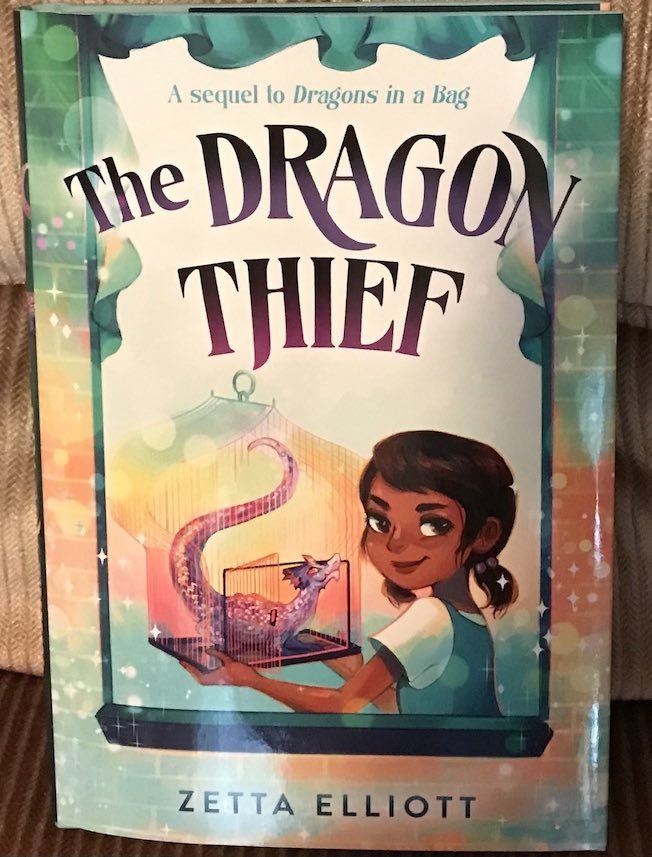Process Talk: Zetta Elliott on Dragons in a Bag (Part 2)
Here’s Part 2 of my conversation with Zetta Elliott about her Dragons in a Bag series.
[Uma] I was thrilled to see Book 2 weaving in the history of Siddi people in India. It’s a history so subject to centuries of erasure that it just made me happy to see it, particularly this way, so loving and threaded through with magic. Can you tell me more about writing this part of The Dragon Thief?
[Zetta] As I write this, I'm looking at the kawandi quilt on my living room wall made by the Siddi Women's Quilting Cooperative. It reminds me of the quilts made by African American women in Gee's Bend, Alabama--and the quilt female relatives in the Caribbean made to help us survive the cold Canadian winters. "Diaspora" is such a complicated concept; it speaks to separation but also continuity, connection, and a single source we may or may not remember. But that memory of "home" lingers...it manifests in the ways we craft, dance, eat, dress, and speak. I'm always aware of the rupture caused by the trans-Atlantic slave trade; it's the reason I have to research so many things about my own heritage. Lately I've been exploring my Irish and Scottish roots, and without professional assistance I can go back several centuries. But when it comes to my African and Caribbean ancestors, enslavement makes the search for names and places almost impossible.
[Uma] These are really important threads, as well as deeply moving personal reflections. How did you manage to employ them so skilfully in this middle grade adventure story?
[Zetta] I use my imagination to fill in some of those gaps and for The Dragon Thief, I wanted to forge a deeper historical connection between Jaxon and Vikram. As Canadians with roots in PCCs (previously colonized countries), you and I are "cousins"--not bound by blood but by shared histories, and experiences, and legacies of British imperialism. I was fed a steady diet of British literature from the time I was very young so when I write for kids, I'm looking for the ways in which I was malnourished--the stories I didn't discover, the routes that led Africans elsewhere in the world, and not only as slaves. There were Africans in India, Iraq, and Iran; we're a global people and since I never knew that as a child, I do what I can to make sure young readers can learn something new through my books.
[Uma] Yes, yes, that’s also why I write, to find out what you call “ways in which I was malnourished.” And to make sense of the world for myself, and pass that along to young readers. Thank you, Zetta!
More to come on Books 3-5.
